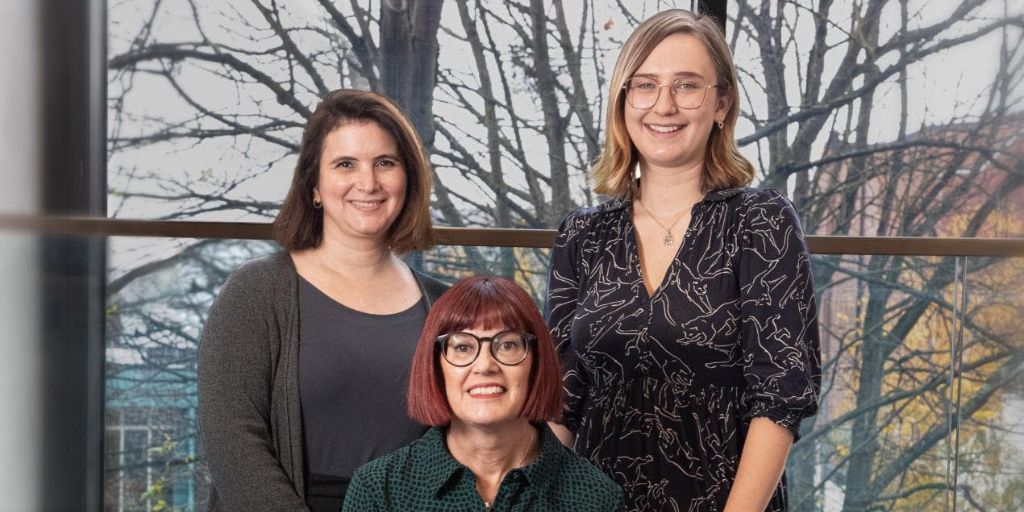An autistic person has shared how remote working has helped them maintain their busy career.
Bronwyn Francis, who was diagnosed as autistic at 25, has shared how remote working helps them maintain a full-time job as a people advisor for the UK Atomic Energy Authority (UKAEA), after their involvement in a Coventry University research study that revealed how remote working can be a positive intervention for people with a disability and/or neurodivergent.
Bronwyn is involved in the Remote4All project, launched by Dr Christine Grant, a researcher in the Research Centre for Healthcare and Communities at Coventry University, in a bid to fill a gap in understanding the impact of remote working on disabled and/or neurodivergent people.
The research explored the lived experiences of working remotely and found advantages and disadvantages can depend on an individual’s needs and specific disability and/or neurodivergence.
Bronwyn said: “For me, remote work has been vital in making sure that I can work full time in a busy career. Through remote working I’m able to control things like all my sensory inputs in a way that just isn’t possible in the office. This means I can wear things like comfortable clothes and I can adjust noise and light levels.
“Remote working also helps me by cutting out that overstimulating commute to work and it gives me the privacy to decompress privately if I happen to get overwhelmed.
“Having a manager who is supportive and listens to my suggestions and asks what I need makes this all possible too.
“In my opinion, the most important thing that employers can do to level the playing field at work is to listen to their employees and ask them what they need.
“By taking the time to talk and experiment, employers can really change how someone can contribute and make them feel welcome.”
The Office for National Statistics published data in 2021 in which they estimate that only 29% of autistic adults are employed in the UK.*
Dr Grant said: “The project found both enablers and barriers to working remotely for this community of remote workers but overall remote working was found to be a very positive intervention for many and if there is a good communication between the line manager and employee, then the benefits can be realised.
“It has become clear through the pandemic that virtual means to interact can really help this community of workers by helping them to manage their communication preferences more easily and for some to manage their sensory needs better.
“These findings revealed that line manager support is vital to ensuring a well-supported experience of remote working, not making assumptions and working with people to find accommodations that work. Having clear guidance and training to help managers, employers are encouraged to hear as well as listen and to find mutual outcomes that benefit both employees and the employer.”
Dr Grant worked with a number of organisations on Remote4All including Vodafone. NHS Employers were also involved in the stakeholder advisory group section of the project.
Carl Clarke, Director – Vodafone Learning Organisation, said: “The Remote4All research reconfirms the central role leaders have in fostering an inclusive culture where everyone can be themselves and shine. At Vodafone, we know it starts with our leaders. That’s why we offer leadership training and support on inclusion and allyship, equipping them with the tools to listen, connect, and celebrate each person’s unique strengths.”
Dr Deborah Leveroy, head of consultancy and research at neurobox, collaborators on the Remote4All project, said: “Everyone is different, it’s not a one size fits all and that’s why the Remote4All project is so important for helping employers and industry understand the nuances of this area.”
UKAEA Chief Operating Officer Justin Kingsford said: “At UKAEA we are extremely proud of our diverse workforce. We actively employ people from many different backgrounds and experiences which we strongly believe enriches the working environment here and helps innovation. Bronwyn is a very good example of our commitment to understand the needs of our staff, which varies on an individual basis. We seek to work with them to understand what they need and ensure they are supported, whilst at the same time meeting the needs of the business.”
As part of the Digital Futures at Work Research Centre (Digit), this work was supported by the Economic and Social Research Council, part of UK Research and Innovation [grant number ES/S012532/1], which is gratefully acknowledged.


